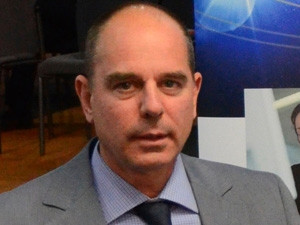
SatADSL, a Brussels-based satellite service operator which offers Internet access services, has entered the South African market.
The company sees considerable potential to provide qualitative high-speed broadband services to remote sites throughout the country for professional applications.
In an interview with ITWeb, Jerome van der Putt, chief commercial officer at SatADSL, said that despite fibre and other terrestrial telecommunications means being widely available in SA, there will always be rural areas that are not covered by appropriate communications means.
According to Van der Putt, the local big telco operators regard the rolling out of technologies in rural areas as not profitable. In this respect, he noted, SA is no different from other countries in Africa.
Fellow industry player, Skywire Technologies says the results of the 2011 South African Census, which were revealed late last year, showed that more than half (64.8%) of households in the country still have no Internet access.
Most of those households are situated in rural areas, beyond the reach of the country's telecoms infrastructure, which includes national operator Telkom's total fibre spanning 143 000 kilometres, says Jaco Visagie, co-director of Skywire Technologies. Mobile connectivity is not really an option either, since only about 80% of the population - most of whom are concentrated among urban and developed areas - has access to the cellular operators' faster 3G signal, according to operator Vodacom's annual reports, he explains.
SatADSL claims its broadband Internet access by satellite achieves data rates of up to 6Mbps, as well as voice over Internet protocol and prioritised services for business-critical applications such as financial transactions.
The company says it expects to go to the market through partnering with highly-skilled and licensed Internet service providers with experience in selling, deploying and maintaining satellite services.
However, the company believes that the South African regulatory environment can be challenging for operations. "Regulations can be challenging and we need fully licensed local partners, and bringing the end-user terminal to the African continent. Keeping low prices is another challenge," Van der Putt said.
In addition, there are more and more low-cost satellite offerings, meaning that SatADSL needs to repeatedly explain its positioning, offering high-quality tailor-made services, he added.
"We differentiate by offering specialised services that we are happy to tailor to specific end-users' requirements, unlike most of our competitors. Our core business lies in offering high quality connections to remote offices of corporates who need to have reliable connection with servers located in their headquarters, for transactional traffic. For this reason, we also offer reactive technical support."
Van der Putt also revealed that network availability is critical for the company's professional customers.
"A typical example is when we support the deployment of ATM networks in rural areas. This brings financial services to a substantial proportion of the still widely unbanked population. We also actively deploy our service for schools in South Africa, located in rural areas. Broadband brought to schools clearly supports education and bridges the digital divide."
The company says it currently runs three pilot projects for ATM deployment with banks in Ghana, Cameroon and Zambia. The service allows ATM operators to deploy cash machines in small towns where terrestrial communication services are not available, unreliable or too expensive.
"In general, financial institutions offer excellent services in the main urban areas, where technologies such as fibre connections and WiMax are readily available. Where the population is less dense, telecommunication links may not be as reliable and are much less adapted to the requirements of financial institutions," Van der Putt noted.
In conclusion, Van der Putt noted that although SatADSL believes that its satellite communication service is of very highly quality, the company does not believe that the solution is the ultimate communications means.
"On the contrary, everywhere where we deploy our solutions in Africa, they prove to be complementary to other solutions available on the market. This is the strength of our ubiquitous satellite communication services - to be able to offer proper communication services where terrestrial means are not adequate for professional usage, and where traditional VSAT services are way too expensive."
Share